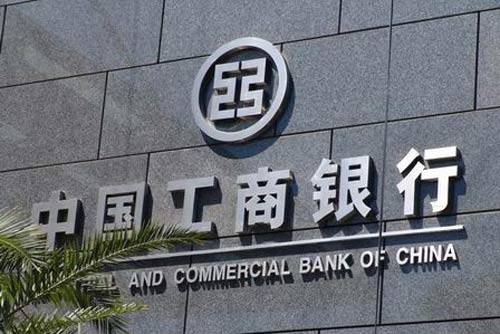
Editor's note: Matteo Giovannini is a finance professional at the Industrial and Commercial Bank of China in Beijing and a member of the China Task Force at the Italian Ministry of Economic Development. The article reflects the author's opinions and not necessarily the views of CGTN.
The development of China's financial market as a result of the introduction of well-crafted government measures, including the removal of restrictions to market access for foreign banks, is beginning to gain real momentum.
The announcement of preliminary approval from the China Banking and Insurance Regulatory Commission (CBIRC) of an important joint venture in the rapidly growing wealth management industry represents another crucial milestone in this sense.
Early this week China's regulator endorsed a deal that involves China's largest bank, the Industrial and Commercial Bank of China (ICBC), and Wall Street's most prestigious investment bank, Goldman Sachs. According to the filing, the U.S. firm is expected to hold the majority with a 51 percent stake in the venture through its asset management arm while ICBC is going to hold the remaining 49 percent through its wealth management subsidiary.
It should be underlined that the approved agreement between these two banking giants does not represent an unexpected move since it follows previous similar arrangements. The setting up of wealth management joint ventures between the U.S. fund manager BlackRock and China Construction Bank, between British asset manager Schroders and Bank of Communications and between French asset manager Amundi and Bank of China portray valuable examples of this trend.
In this context, it is my belief that the CBIRC's imprimatur provides one more time a direct message to the global financial community that still complains about lack of accessibility for foreign entities to China's huge domestic market. The fact that access to China is granted not only to simply operate the business but also to benefit from a position of the majority in the shareholding structure shows the lack of substance in the criticism raised.

The CBIRC through this approval may want to send the stakeholders a clear message of encouragement for the development of the entire Chinese financial industry by fostering more market accessibility and commercialization of a wider range of investment products. In this way, the joint venture is expected to have an impact on the real economy since a more diversified and professional wealth management service can only lead to better investment choices and, as a direct result, better returns and a higher level of household consumption.
I believe that timing has played an important role in guiding the CBIRC to the decision for approval of the deal. The regulator may have understood that increasing domestic wealth, a growing middle class, an upcoming Wealth Management Connect in the Greater Bay Area and investable assets predicted to reach $70 trillion by the end of the decade are all determining factors for granting a green light to a joint venture deal of this magnitude.
In my view, the joint venture also represents the perfect combination between two of the most widely known financial institutions that can rely on a strong balance sheet, a large scale, geographical presence and brand recognition.
For ICBC, which in February 2019 received from the CBIRC the green light to set up a wealth management subsidiary, the joint venture is a boon to the development of corporate know-how in an industry segment where it still lacks the level of sophistication, customer service and wide spectrum of products that Western firms bring to the table. A collaboration with a company of the caliber of Goldman Sachs provides a boot camp for ICBC's wealth managers.
From Goldman Sachs' perspective, the approval of the deal means a direct access to China's market and a full recognition of decades of presence and commitment in the country. The U.S. bank choosing ICBC as a partner may have considered that the Chinese bank is a giant, the largest by assets in the world, having 680 million personal banking clients and 25 million customers in its wealth unit. The analysis of these figures may have quite certainly stimulated the appetite of Goldman Sachs' executives in tapping this potentially remunerative market.
All in all, the CBIRC's approval of a joint wealth management venture not only represents a win-win decision for the two parties involved, but also displays China's determination to elevate the standard of a domestic financial market that is becoming more interconnected with the rest of the world.
(If you want to contribute and have specific expertise, please contact us at opinions@cgtn.com.)

